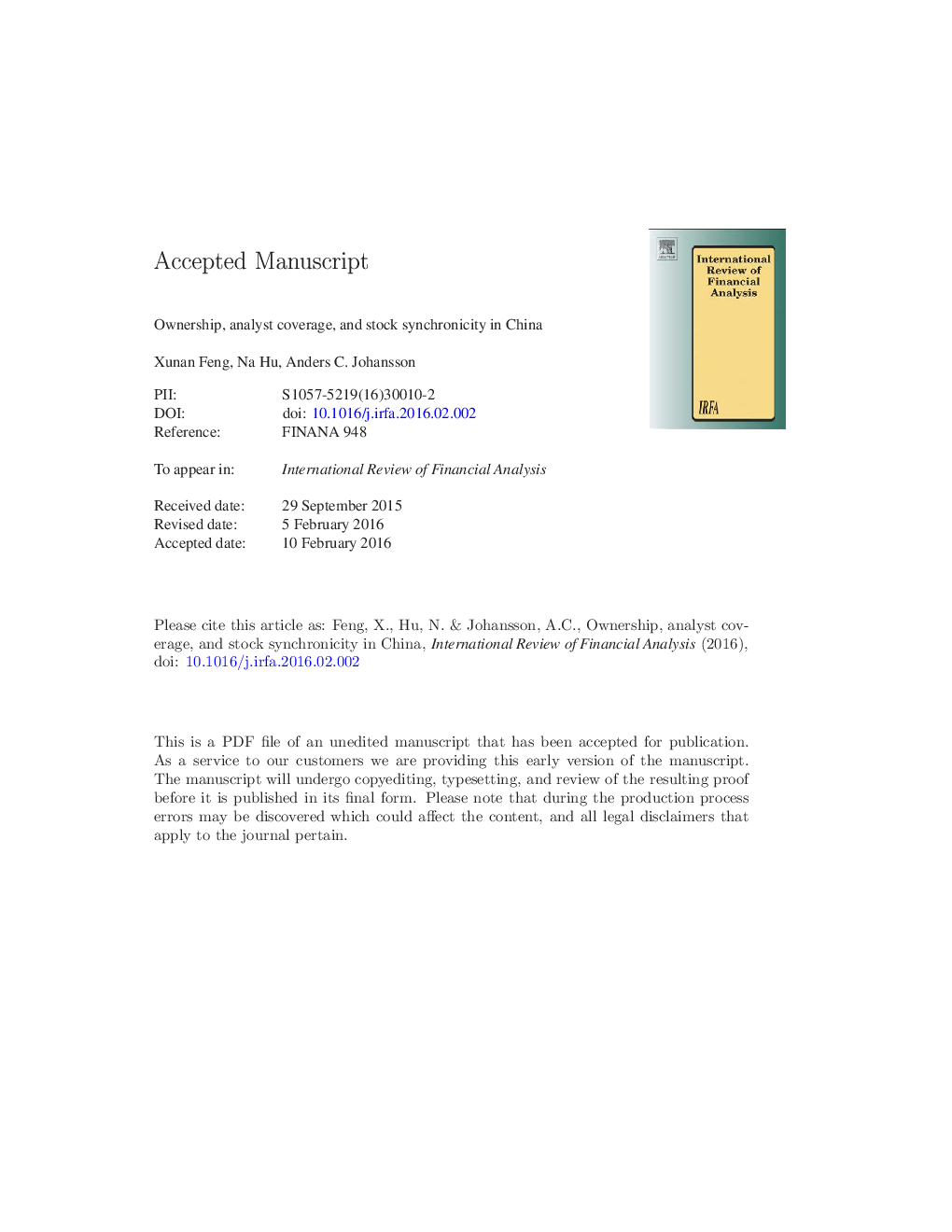| Article ID | Journal | Published Year | Pages | File Type |
|---|---|---|---|---|
| 5084470 | International Review of Financial Analysis | 2016 | 82 Pages |
Abstract
This study examines how ownership structure affects the information environment of publicly traded firms in China. We hypothesize that concentrated ownership and the associated separation of ultimate control and ownership rights create agency conflicts between controlling shareholders and minority investors leading controlling owners to withhold firm-specific information from the market. We test this hypothesis by analyzing the effect of ultimate ownership structure and analyst coverage on stock return synchronicity. We find that a greater separation of control and ownership rights increases the response coefficient of stock return synchronicity to analyst coverage. This result is robust to endogeneity, a series of robustness checks, and an alternative hypothesis based on noise trading. The incentive of controlling owners to limit firm transparency thus leads analysts to disseminate more market-wide information.
Related Topics
Social Sciences and Humanities
Economics, Econometrics and Finance
Economics and Econometrics
Authors
Xunan Feng, Na Hu, Anders C. Johansson,
